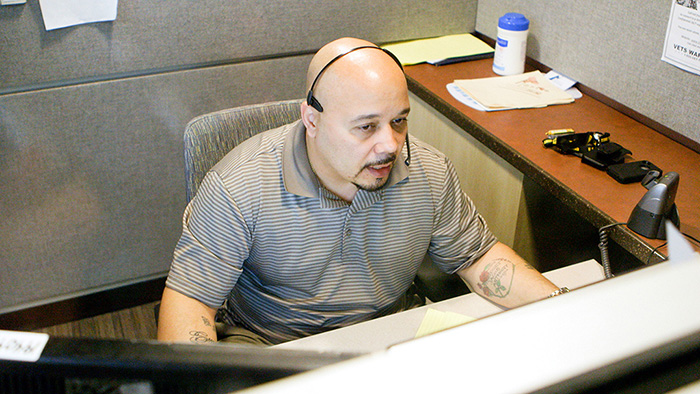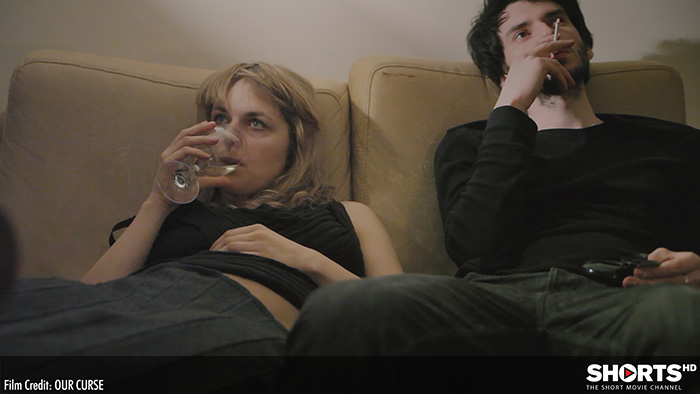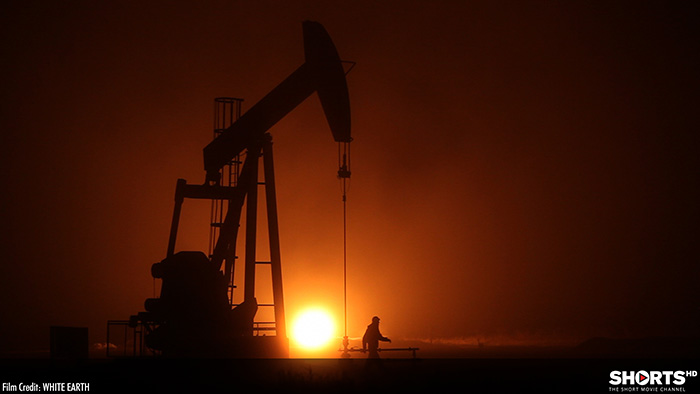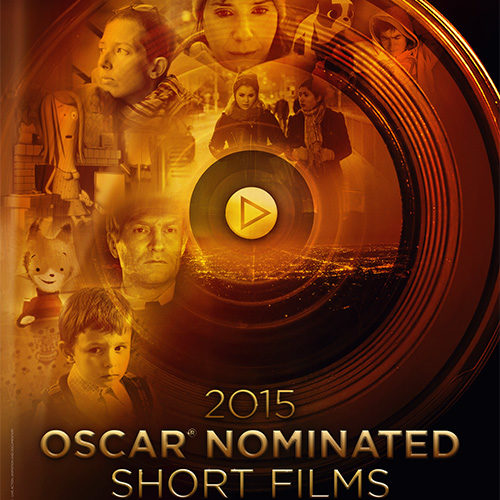Ahead of the Academy Awards, we’re reviewing each short category. See the Documentary section below and the other shorts sections here.

Crisis Hotline: Veterans Press 1 – USA – 39 minutes
Let’s just say it isn’t shocking to learn the federal government has only one Veterans’ Crisis Line office. America has a long history of soldiers coming home to a lower levels of support than deserved, so the reality that every call—and the numbers are staggering with the statistical probability of suicide being one vet per hour—is routed to Canandaigua, NY sounds about par for the course. Luckily for those strong enough to seek assistance, the men and women working tirelessly around the clock are exactly who they need for help. Director Ellen Goosenberg Kent‘s documentary short Crisis Hotline: Veterans Press 1 may spotlight the intricacies of the job itself as its motivating plot thrust, but the real success lies in it providing a venue to showcase those compassionate souls doing all they can to save lives.
It’s not an easy job answering phones for hours at a time, always with someone on the other end about to or in the middle of ending his/her life. The toil that takes is immeasurable because you only need one person to carry out the threat before the countless other survivors are rendered moot. It is most definitely a victory when these responders can smile and sigh with relief after the words “you take care now” travel over the phone. That satisfaction despite being shaken to the core from the highly emotional work completed is a miraculous thing. What Kent doesn’t show—either out of respect to the dead or because they didn’t lose anyone during filming—is the aftermath of a defeat. Frankly, she doesn’t need to since we can all imagine the utter devastation it brings.
What’s most fascinating in its office-set crusade are the logistics involved with each call. The responder is the point of contact, a trained mental health advisor able to coax out pertinent details of each caller’s identity and whereabouts while also working to calm them down. They instant message those facts to the emergency coordinator who then calls local police to direct them on how to proceed at the scene. On top of that are the bosses comforting their responders, telling them how great they’ve handled the tough cases as a shoulder to cry on or a friendly voice to sooth like they do for their veterans. Because whether a death is prevented or not, these counselors simply being there when no one else will makes them heroes of a war raging within the shadows here at home.
The short is currently available on HBOGo and HBO On Demand (OnDemand through March 9th).
B

Joanna – Poland – 40 minutes
If I was diagnosed with terminal cancer and told I had three months to live, I’m not sure I’d think to blog about it. But that’s exactly what Joanna Sałyga decided to do, putting her thoughts on life, death, love, and loss out into the world so others sharing in her grief could stop feeling alone and so she could have a venue with which to tell her husband Piotr and son Jan Wenda everything she could ever think to say. She’s become an icon to many through her ability to stare darkness in the face and find purpose in her tragic ordeal. Some would simply give up and bide their time until those ninety days were over. Joanna sought to live them as well as she could with the two people she loved the most.
She is the subject of Aneta Kopacz‘s documentary short Joanna, a companion piece to the blog that immortalizes her strength in sorrow. Depicting the good days and bad, we watch as Joanna writes for Jan, deals with the pain of treatment, and remains a vigilant mother by not allowing her son to talk her into eating McDonald’s. Kopacz captures the often-brave face staring at her men with joy and optimism until the weight of their situation can only leave her in tears at the thought they will soon be alone. Piotr does his best to be present, hold her, and provide a silent rock in body, mind, and spirit. The precocious Jan shares adoration while also testing her boundaries—overly mature yet still a boy about to lose the person who makes him happiest in the whole world.
There’s a subtlety of tone throughout as sequences live through quiet emotion while other showcase the unique relationship this family possessed to enjoy fun despite their circumstances. It’s very much a love letter, more visceral in its scope than the thoughtful words Joanna has written, but surely more potent as well. The film provides Piotr and Jan a living document of the wife/mother who wouldn’t be defeated, who wouldn’t surrender, and who loved them with every fiber of her being. I therefore couldn’t help smiling at the end, knowing what a treasure this poignant portrait of grace supplies. Yes it is devastating and yes it is extremely sad, but it’s also a testament to Joanna and Kopacz’s handling of the material that the final piece ultimately proves a heartwarming document of the simple pleasures we take for granted.
B+

Our Curse – Poland – 27 minutes
After culling together home videos documenting the early days of his son Leo Hueckel-Sliwinski‘s life along with brief one-shots of cathartic conversations had between he and wife Magda Hueckel into a seven-minute short three years ago, Tomasz Sliwinski expands their harrowing tale via the half hour long Our Curse. Aptly named for the affliction suffered by Leo known as Ondine’s Curse (Congenital Central Hypoventilation Syndrome, CCHS), the film takes us on the emotional roller coaster experienced once a young couple is forced to put aside whatever dreams of parenthood they once had for the stark reality confronting them head-on. It shines a light on their fears and challenges while also providing a glimpse at the power of love and mankind’s adaptability to ensure life continues no matter what tragedies are thrown its way.
Leo will never breath on his own while sleeping, his CCHS entailing a need to sleep with a ventilator for the rest of his life through a permanent tracheotomy hole in his neck. It’s unknown whether speech is possible or how his struggle will evolve when he’s old enough to comprehend his state, but at present he has parents sacrificing everything to see he survives to find out. This means constant vigilance at night listening for alarms and sounds emanating out of the machine; a continual presence in case he nods off during the day without anyone knowing; and a wealth of positivity to keep a smile on his face. Tomasz and Magda do it all with one crucial outlet—evenings on the couch to drink, air frustrations, and wrap their heads around their new life.
Our Curse is an uncensored look at the hand fate has dealt them spanning frustrated phone calls to the hospital and insurance company, the lengthy process of packing for trips away, and the act of cleaning Leo’s tube and neck hole while he writhes around within his swaddled cocoon. You can’t imagine what’s going on in this couple’s heads at any moment, thoughts of joy that their son is alive mixed with guilt at wondering whether it might have more humane if he wasn’t. Sliwinski pulls no punches, leaving insecurities and second-guesses onscreen to show exactly what they went through to get where they are today. And out of the nightmare rises a family stronger than ever and ready to face the world. Hope sprung from disaster and love conquering all.
B

The Reaper – Mexico – 29 minutes
With thought provoking musings on life and death, The Reaper provides a unique look at Mexican slaughterhouse employee Efraín Jiménez García. A husband and father who walked by the business one day to see a “Now Hiring” sign, Efraín has worked his way up from waste sweeper to killer during a twenty-five year career. He understands what it is he does—the difference between animal and man as well as the similarities inherent to watching a bull shot with tears in its eyes. He’s lived through the death of his father and sister, moving forward despite that pain for the family he has at home. One day he will be motionless like the beasts he slaughters, left in the nothingness it brings and the quiet of life’s hell being complete.
A visually stunning work, director Gabriel Serra opens his film with close-up static shots expertly cropped at intriguing angles while the cows shuffle through their claustrophobic lanes to meet their executioner. We look through holes in the walls as the animals slip, fall, and get back up only to shudder at the pull of a trigger before crumpling back to the ground and out a false wall for the next victim to follow. It’s a mater-of-fact look at the grotesque yet necessary process; one depicted with a cautious, non-judgmental eye while the narration and somber tone project a feeling of melancholy on top. Silent for the first six minutes besides ambient noise, it’s when Efraín first speaks above the images that we understand where we are and what’s happening.
He has a very keen sense of mortality with an almost utilitarian sheen. He mourned those he loved and moved on to live for those still alive. He mourns the bulls he kills in his own way too through sad, heavy eyes, but he continues so he may put food on the table. There’s a certain poetry to his words, poignant remarks about man’s weakness against these animals on the ground reversing once he’s positioned above them trapped in their cage. We understand and weigh the complexity of this situation that many find mundane, the layers of morality and survival usurping what others like to tidily label as murder from afar. The meat skinned, washed, and hung stands in for our own flesh—both eventually lifeless when mere minutes earlier possessed a spark of consciousness.
A-

White Earth – USA – 20 minutes
From the mouths of babes: Christian Jensen‘s White Earth is The Overnighters from the perspective of those uprooted along with the men heading to the North Dakotan oil fields. One boy remains in his trailer by himself rather than go to school while his father works. A young girl who traveled with her family from California so her dad could get a job makes new friends. And another girl—this one born and raised in the titular town—watches as strangers overrun the peaceful state she grew to love. Oil becomes an everyday staple in their lives, a subject in school and the sole reason they can afford to survive cold winters. Without censor or reason to be diplomatic, they share the pros and cons of the industry it relates to their personal childhoods.
For them the American Dream is little more than a phrase they may have never even heard. They go along with what their parents are doing and grow to forge their own understanding of what North Dakota gives them. They have their own aspirations, none of which involve working in the fields themselves despite knowing in the back of their heads that it may end up their only option. The parents do it so their kids won’t have to, but as more people arrive to simultaneously make jobs scarce and drive up standard of living costs, every new eighteenth birthday more than likely carries the inevitability of permanent residence. And those who will eventually get out? The oil is already in their blood since its existence is most likely a driving force for their escape.
Jensen’s film becomes an educational look at the Northern Plains’ changing landscape via those who to experience what it means to live there. Their fathers spend so much time on the rigs that home respites are spent sleeping rather than living. To them this way of life is a means to an end, for their children it’s the only reality they know. You can’t therefore blame each for their frustrations, unable to reconcile adulthood responsibility with their yearning to be loved. We know their parents do it for that love, but these middle-schoolers only see their isolation in a desolate world far removed from what they used to know. It would appear crude oil always creates a hot button issue for American families, not just the reserves in the Middle East.
B
The Oscar Nominated Shorts are now showing in limited theatrical release. See the official site for more details and our reviews of the other shorts sections here.

